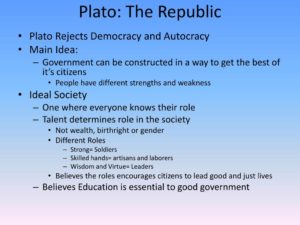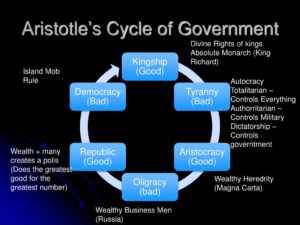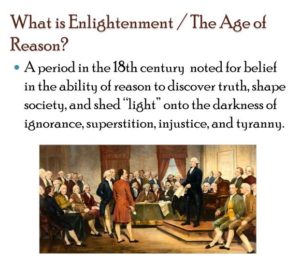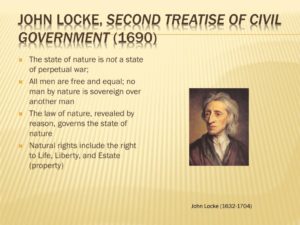
Greco-Roman-Enlightenment Tyranny to Sin;
Reality Does Not Fit the Myth of Western Freedom
I would like to tell you a fairytale of Freedom’s beginnings and growth from ancient Greece down to the Enlightenment Era, Age of Reason, in Europe; however, you have already been told this fairytale from birth through schooling and into adulthood. Nothing is more pervasive than in Western culture; yet, nothing is more erroneous. Instead, building upon several previous posts I must take on the arduous and unpopular task of revealing Greco-Roman’s tyranny and its perpetuation into our modern era via the Age of Reason or so-called Enlightenment {Father of the Never Ending Revolution. Democracy: Socialism by Mob Rule {Antifa}.}.
God gives Man a clear understanding of succeeding governmental empires since the last Great Reset after the collapse of the Bronze Age in Daniel’s book. Defeat of the Babylonian-Persian empires shifts focus from Mesopotamia to what is generally called Europe today via the rise of the Greco-Roman empires. In fact, Daniel gives more detail concerning the rise and disintegration of the Greco Empire than he does the Roman Empire’s succession. Daniel clearly shows us that these empires were dominated by Satan as he built toward his ultimate climatic empire that will arise prior to and concurrent with the Great Tribulation and the revealing of the Antichrist (2Th 2:3-12). Thus, why do Christians ignore this revelation and cling to the fairytale that freedom grew from Greco-Roman philosophy to produce godly countries such as America {their beliefs; not mine}? This is a clear case of one’s sinful worldview reading into Scripture, eisegete, rather than gaining one’s understanding from Scripture, exegete.

Plato’s Highest Government Form is the
Philosopher-King Who Decides by Reason
Plato dominated Greek philosophy and still forms the bedrock Socratic notions that supposedly underlie Greek notions of liberty. His Cave allegory illustrates how the philosopher finds truth via self-revelatory works and reenters the Cave to free others. His implication: Truth can be discovered from one’s own efforts and taught to others until all who wish to be free are freed. Plato wrote that the philosopher-king is the only person capable of making the correct choices for the betterment of everyone whether they agreed or not. Does anyone begin to detect the early trappings of Rousseau’s General Will and the absolute State? But, what did the Greeks actually practiced? Nearly constant warfare both in Greece and later in Mesopotamia after Alexander’s death based on deception, briberies and force until a brutal tyrant arose who desecrated God’s Temple in Jerusalem with the assistance of False Jews who rejected God’s Bible. The closest the ancient world came to this philosopher-king concept was the Roman Emperor, Marcus Aurelius, and he was embroiled in decades of warfare to subjugate the Germanic peoples; not very freedom loving.

Aristotle’s Governmental Cycle Lacked Freedom;
Good Determined from Who Benefited
Aristotle had a differing view from Plato in several respects. He believed government could be by one, a few or many with good and bad dependent upon who benefited. If the ruler(s) benefited then it was bad; however, if the citizens benefited then it was good. Notice, good and evil are not absolutes in his philosophy but are determined by works. Aristotle taught Alexander, the Great, but later disavowed his student seeing the results of Alexander’s conquests; benefiting government. Upon Alexander’s death his Grecian generals did as all Grecian did: They fought for Control over each other for centuries until weak and exhausted they were taken over by Rome.
There were many other philosophers but for all their words the results were the same: War and Tyranny. Athens became the great dictator over many Grecian city-states and forced them into alliances from which succession was forbidden; sound familiar? Greece did not produce freedom though both Plato and Aristotle warned against democracy. Their legacy was the foundations of socialism which were actually inherited from the early and middle Bronze Age empires.
Rome was the great absorber of culture. Much of what is today considered Roman was actually absorbed from the Etruscans {The Mysterious Etruscans. Great Courses.}. Rome also absorbed the philosophical concepts from Hellenism. Rome expanded and absorbed so much that much of what was Roman was diluted by Gaulish and Germanic forces that sought to become Roman. The Western Roman Empire was not defeated so much as absorbed by non-Romans that it ceased to exist as a political entity; the Eastern Roman {Greek} Empire lasted another 1,000 years {The Fall of Constantinople.}. Much of what was considered Western Roman percolated throughout Europe during the Medieval Period until the coming of the Renaissance; a great resurgence in Greco-Roman learning. It was considered a rebirth of culture and the beginning of modern humanism. The Renaissance re-embraced Greco-Roman tyranny believing they were being freed from monarchial tyranny. However, only the elites in emerging societies benefited from this increase in learning; most remained mired in serfdom until freed by the later Industrial Revolution.
Renaissance was balanced by the Reformation which rejected Roman Catholic (RCC) papal authority in Church and government affairs. This re-emergence of Scriptural exegesis based on newly found Hebrew and Greek manuscripts crushed RCC death grip on biblical interpretation and application. Unfortunately, Protestantism quickly aligned with newly formed nation-states and became oppressors in their own right. The Greco-Roman legacy of nearly constant warfare was reignited to determine which definition of right and wrong, Bible or otherwise, would hold sway. None of this followed Christ’s Gospel of non-violent evangelism (Mt 5:38-47) quickly leading many peoples to reject any ecclesiastical authority.

Enlightenment-Discovery of Truth via Reason
Basically Returning to Platonism Revised
Europe believed that God, quasi-defined by the Bible was reasonable and thus His Creation could be explored through Reason. This gave rise to Natural Philosophy which later became modern science. However, their view of God was drastically different than the biblical description of God. Man became the active agent as God created and then let Creation run itself. Many useful discoveries were made that changed Western culture and eventually every culture. However, the Gospel of Salvation was rejected; biblical truth was rejected in lieu of Man’s understandings (Ro 1:18-28). While this period gave birth to the Industrial Revolution raising millions out of serfdom and slavery, it also stole access to God’s saving grace. In the end the Age of Reason gave rise to two apparently different revolutions. The French Revolution under Rousseau’s philosophical guidance was discussed in the two posts cited at the beginning of this post. However, there was another view operant during this period also.

Locke Envisioned a Differing Law Set;
Natural Law which was Above Governments
John Locke came from Protestant background but in truth was more a Deist than Christian {Waxman, R. RESEARCH ON JOHN LOCKE’S INFLUENCE ON THE PHILOSOPHY OF DEISM DURING THE AGE OF ENLIGHTENMENT. Abstract.}. Locke made his own decisions about what was natural and what was not based simply on his own reasoning; not unlike Rousseau but in a different context. He has no biblical foundation for his natural law philosophy nor for his assertion that citizens can rebel or throw off their government if it violates their natural rights (Ro 13:1-7). He repudiates man’s fallen nature by asserting that everyone is born as a clean slate {tabula rosa} (Ac 4:11-12; Ro 3:23). While the French Revolution followed Rousseau and sought to remake France as an economic socialistic government based on a nebulous General Will supported by Mob Rule {Democracy} and absolute government control; the American Revolution followed Locke which did not seek to reject Industrial Age commerce and give government absolute sway over citizens. Locke believed his view of government serving the citizens was less destructive; and so it was with the American Revolution. It persuaded citizens rather than wholesale executed dissenters.
But, that has been changing since Lincoln who rejected Locke’s view of government in lieu of Rousseau’s view of an indissoluble government once brought into existence. The Progressive Era ushered in by Republicans but quickly coopted by Democrats changed America from a republic to a national socialist government. Today government is agitating for international socialism as it realizes the true and full extent of its Greco-Roman heritage as described by both Daniel and John. Whereas France, and other countries that followed her path, used wholesale violence and death; America and Great Britain used propaganda and scientisms such as psychology to persuade people to accept their own re-enslavement, or return to serfdom. Thus, Western culture torn by these two differing approaches are meeting in the middle under Satan’s guidance to usher in his greatest governmental Empire yet attempted and with the people’s consent {Locke} backed by force {Rousseau} when necessary. This is the brutal truth of the Greco-Roman-Enlightenment legacy. This is the return to the Dark Ages wherein the light of Gospel will be dimmed by the unreasoning Reason of sinful people clamoring for greater self-degradation and tyranny in the midst of the resultant increased violence. This is Satan’s true legacy awaiting our future (Mt 24:3-16).Flee to Christ’s saving grace (Ro 10:9-10)!
